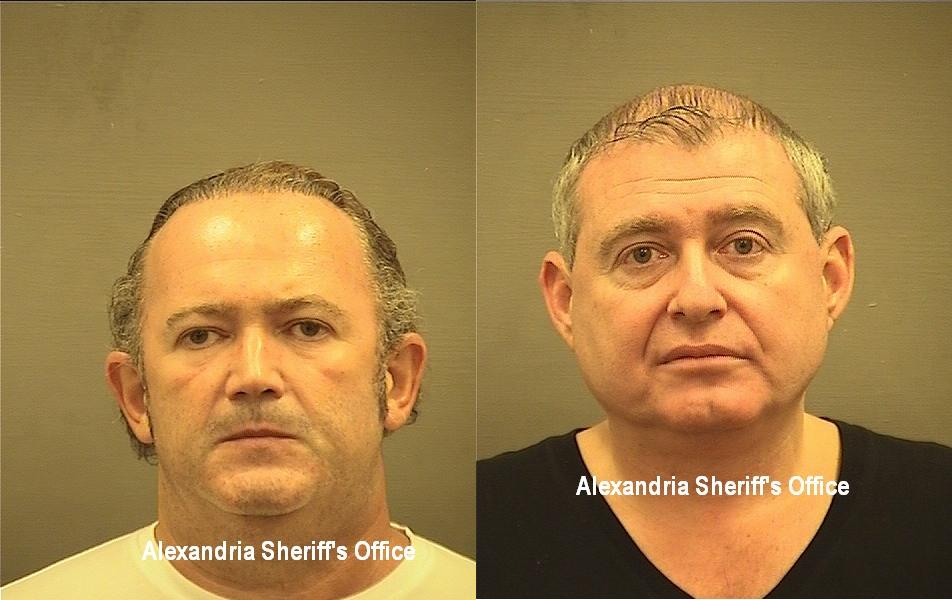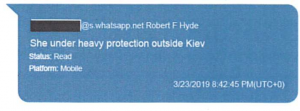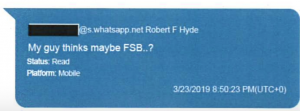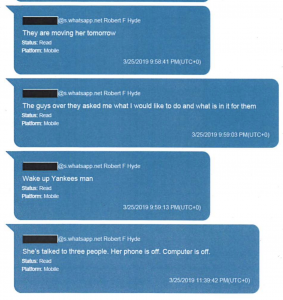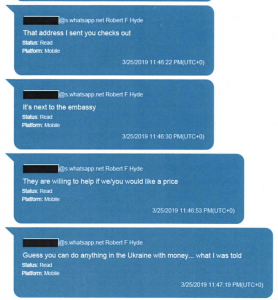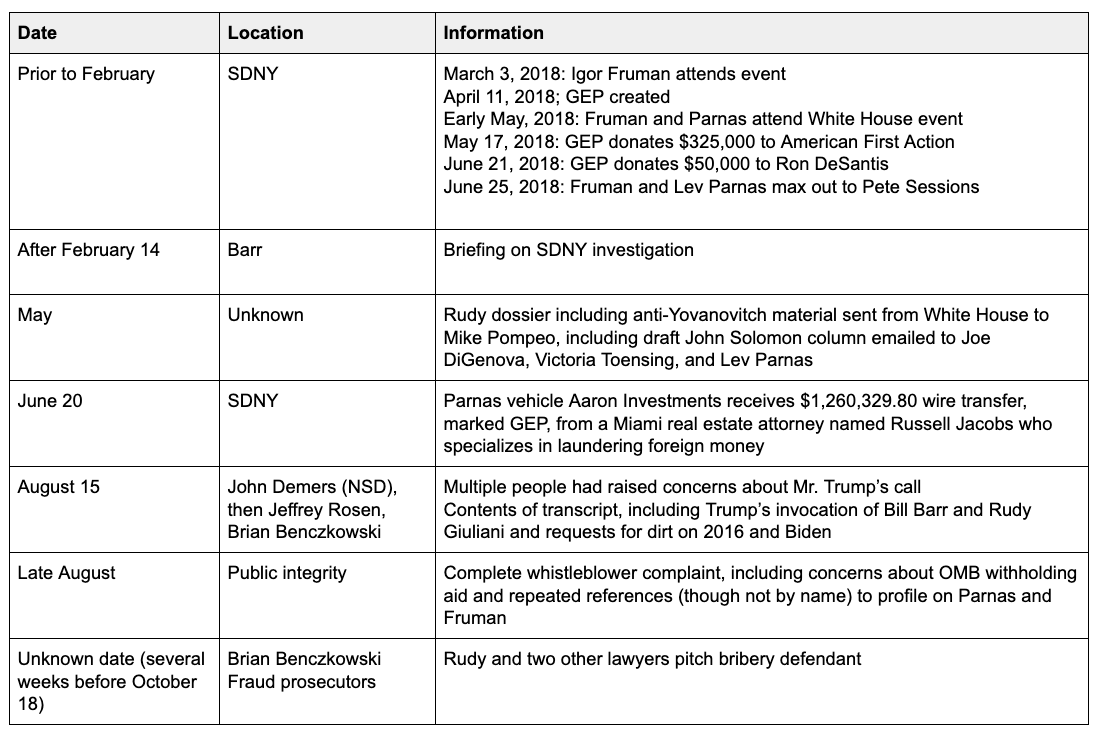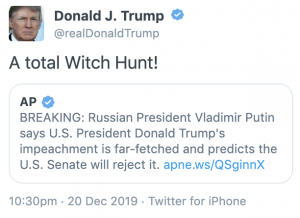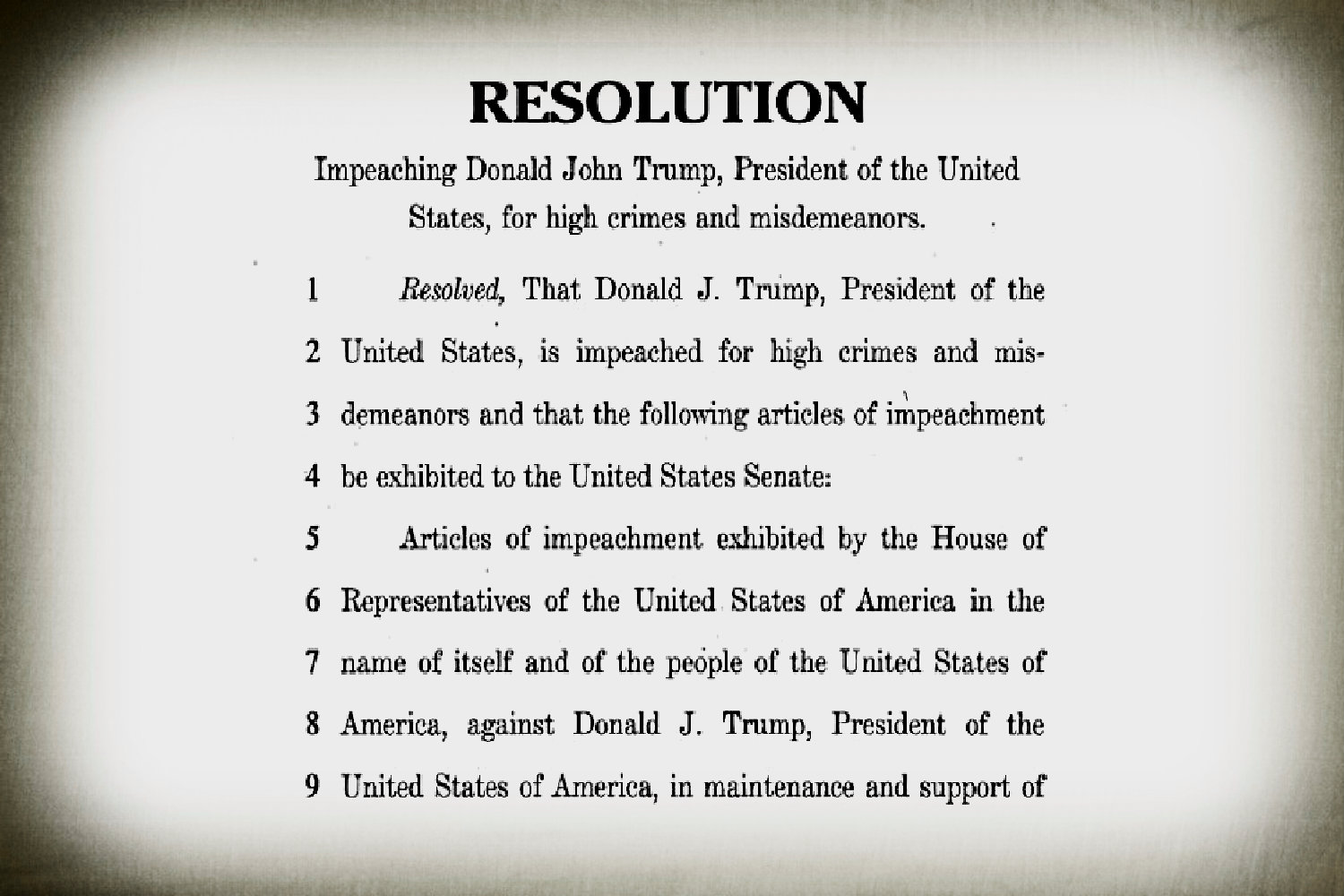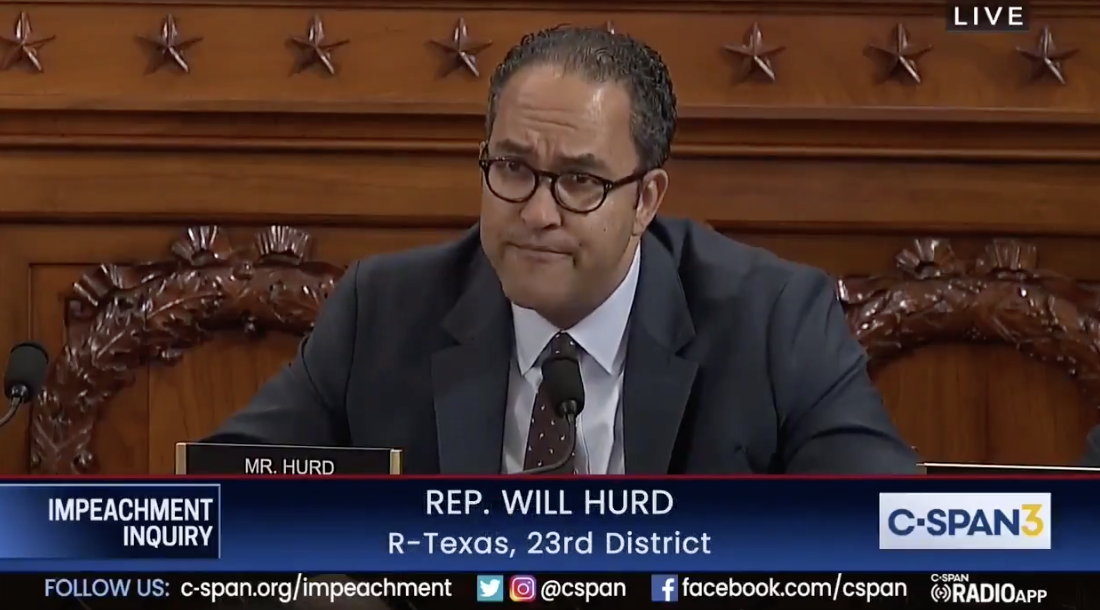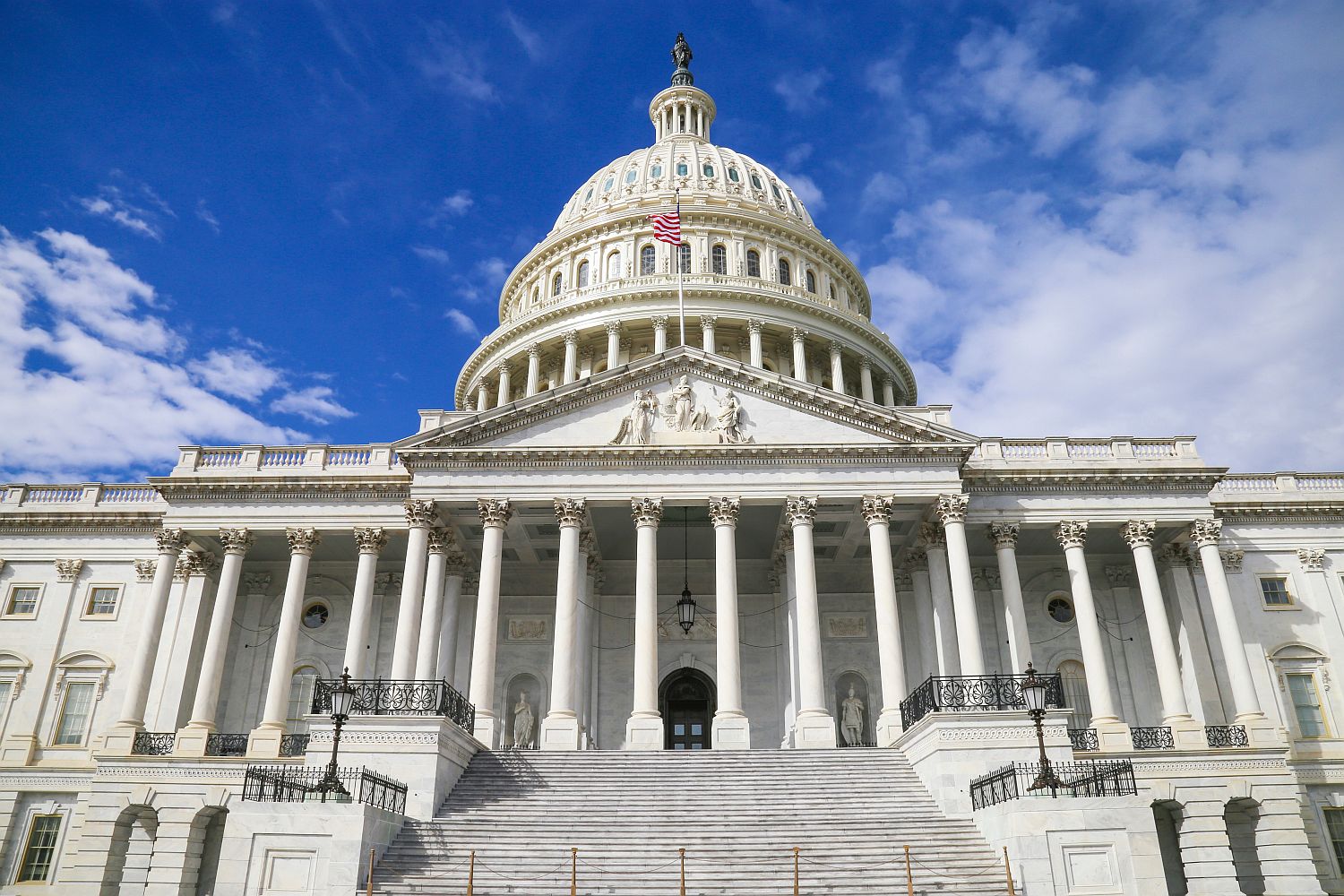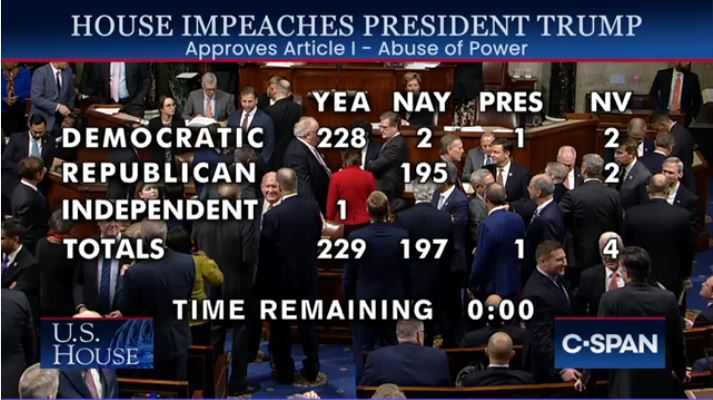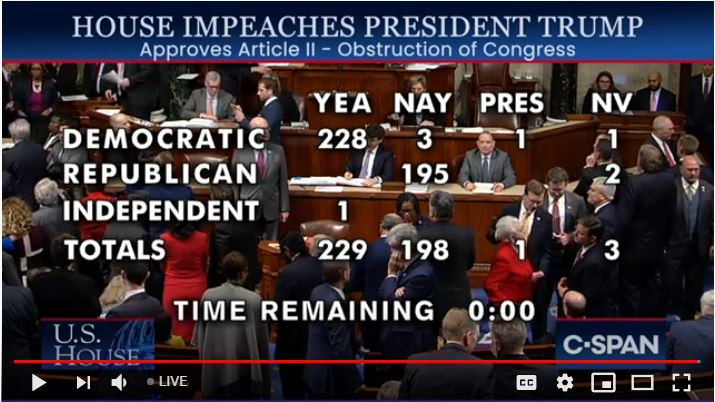GAO’s Determination that Trump Broke the Law Raises the Stakes of Senate Exoneration
Since Mick Mulvaney confessed to being in violation of the Impoundment Control Act back on October 17, I’ve been waiting for that fact to take on the constitutional import that it should in the impeachment process. Finally, today, on the day the Senate starts Trump’s trial, it has done so.
That’s because the Government Accountability Office, a nonpartisan body that works for both the Democratic majority House and the Republican majority Senate, has deemed DOD’s withholding of defense support for Ukraine illegal under the Impoundment Control Act.
GAO’s findings are modest. It does not get into whether Trump’s actual purpose for withholding the funds — which evidence suggests involved extorting Ukraine to produce dirt on Joe Biden — is legal or not. It accepts that Trump had a policy purpose for delaying the funds, without getting into what that policy was. But even on those terms — even if it was done for Trump’s cover story purpose of combatting corruption — GAO finds that withholding the funds was illegal.
As it lays out, Trump cannot simply ignore Congress’ appropriations. If he wants to act contrary to appropriations, he either has to ask Congress to cancel the funds — a rescission — or delay it for one of a narrow set of reasons. Both actions require notice to Congress.
Not only did Trump’s Office of Management and Budget not provide full notice to Congress, but since the funds were ultimately spent, the delay could only be considered a deferral, and the purpose OMB stated in the explanation they did offer does not fall under the acceptable purposes of a deferral.
An appropriations act is a law like any other; therefore, unless Congress has enacted a law providing otherwise, the President must take care to ensure that appropriations are prudently obligated during their period of availability. See B‑329092, Dec. 12, 2017 (the ICA operates on the premise that the President is required to obligate funds appropriated by Congress, unless otherwise authorized to withhold). In fact, Congress was concerned about the failure to prudently obligate according to its Congressional prerogatives when it enacted and later amended the ICA. See generally, H.R. Rep. No. 100-313, at 66–67 (1987); see also S. Rep. No. 93-688, at 75 (1974) (explaining that the objective was to assure that “the practice of reserving funds does not become a vehicle for furthering Administration policies and priorities at the expense of those decided by Congress”).
The Constitution grants the President no unilateral authority to withhold funds from obligation. See B‑135564, July 26, 1973. Instead, Congress has vested the President with strictly circumscribed authority to impound, or withhold, budget authority only in limited circumstances as expressly provided in the ICA. See 2 U.S.C. §§ 681–688. The ICA separates impoundments into two exclusive categories—deferrals and rescissions. The President may temporarily withhold funds from obligation—but not beyond the end of the fiscal year in which the President transmits the special message—by proposing a “deferral.”[4] 2 U.S.C. § 684. The President may also seek the permanent cancellation of funds for fiscal policy or other reasons, including the termination of programs for which Congress has provided budget authority, by proposing a “rescission.”[5] 2 U.S.C. § 683.
In either case, the ICA requires that the President transmit a special message to Congress that includes the amount of budget authority proposed for deferral or rescission and the reason for the proposal. 2 U.S.C. §§ 683–684. These special messages must provide detailed and specific reasoning to justify the withholding, as set out in the ICA. See 2 U.S.C. §§ 683–684; B‑237297.4, Feb. 20, 1990 (vague or general assertions are insufficient to justify the withholding of budget authority). The burden to justify a withholding of budget authority rests with the executive branch.
There is no assertion or other indication here that OMB intended to propose a rescission. Not only did OMB not submit a special message with such a proposal, the footnotes in the apportionment schedules, by their very terms, established dates for the release of amounts withheld. The only other authority, then, for withholding amounts would have been a deferral.
The ICA authorizes the deferral of budget authority in a limited range of circumstances: to provide for contingencies; to achieve savings made possible by or through changes in requirements or greater efficiency of operations; or as specifically provided by law. 2 U.S.C. § 684(b). No officer or employee of the United States may defer budget authority for any other purpose. Id.
Here, OMB did not identify—in either the apportionment schedules themselves or in its response to us—any contingencies as recognized by the ICA, savings or efficiencies that would result from a withholding, or any law specifically authorizing the withholding. Instead, the footnote in the apportionment schedules described the withholding as necessary “to determine the best use of such funds.” See OMB Response, at 2; Attachment. In its response to us, OMB described the withholding as necessary to ensure that the funds were not spent “in a manner that could conflict with the President’s foreign policy.” OMB Response, at 9.
The ICA does not permit deferrals for policy reasons. See B‑237297.3, Mar. 6, 1990; B-224882, Apr. 1, 1987. OMB’s justification for the withholding falls squarely within the scope of an impermissible policy deferral. Thus, the deferral of USAI funds was improper under the ICA.
Moreover, the footnotes that OMB used in lieu of notifying Congress that Trump was blowing off Congress weren’t proper, either, GAO found. That’s because DOD continued to do what it needed to do to appropriate the funds (something that the bureaucrats at DOD did in part to execute the will of the President, but partly to cover their own ass). The only reason the funds were withheld was OMB’s order, which amounts to a reportable impoundment.
OMB asserts that its actions are not subject to the ICA because they constitute a programmatic delay. OMB Response, at 7, 9. It argues that a “policy development process is a fundamental part of program implementation,” so its impoundment of funds for the sake of a policy process is programmatic. Id., at 7. OMB further argues that because reviews for compliance with statutory conditions and congressional mandates are considered programmatic, so too should be reviews undertaken to ensure compliance with presidential policy prerogatives. Id., at 9.
OMB’s assertions have no basis in law. We recognize that, even where the President does not transmit a special message pursuant to the procedures established by the ICA, it is possible that a delay in obligation may not constitute a reportable impoundment. See B‑329092, Dec. 12, 2017; B‑222215, Mar. 28, 1986. However, programmatic delays occur when an agency is taking necessary steps to implement a program, but because of factors external to the program, funds temporarily go unobligated. B‑329739, Dec. 19, 2018; B‑291241, Oct. 8, 2002; B‑241514.5, May 7, 1991. This presumes, of course, that the agency is making reasonable efforts to obligate. B‑241514.5, May 7, 1991. Here, there was no external factor causing an unavoidable delay. Rather, OMB on its own volition explicitly barred DOD from obligating amounts.
GAO notes that the communications it got from DOD and OMB were insufficient. It also notes that State gave it nothing, as it tried to figure out whether that delay, too, broke the law.
As I noted back in October, first Trump refused to tell Congress what was going on with the funds, even though members of both parties, together, and both houses, together, asked. But then Trump exacerbated the crime by refusing to explain all this after the fact. It’s not just that Trump is withholding documentation from the impeachment inquiry. It’s also withholding documentation Congress is entitled to under its appropriation function.
In spite of the fact that a core part of the Republican brand is a claim to care about whether the Executive Branch spends money in the way Congress tells it to, this will likely not make a difference in the Senate impeachment process. Trump has flouted the power of the purse that is normally fiercely guarded by both parties in Congress. But the Republicans will still — even with this nonpartisan proof that Trump has screwed them over — vote not to remove him from office.
Which will mean, in doing so, Republican Senators will sanction even more unconstitutional acts from this President.


